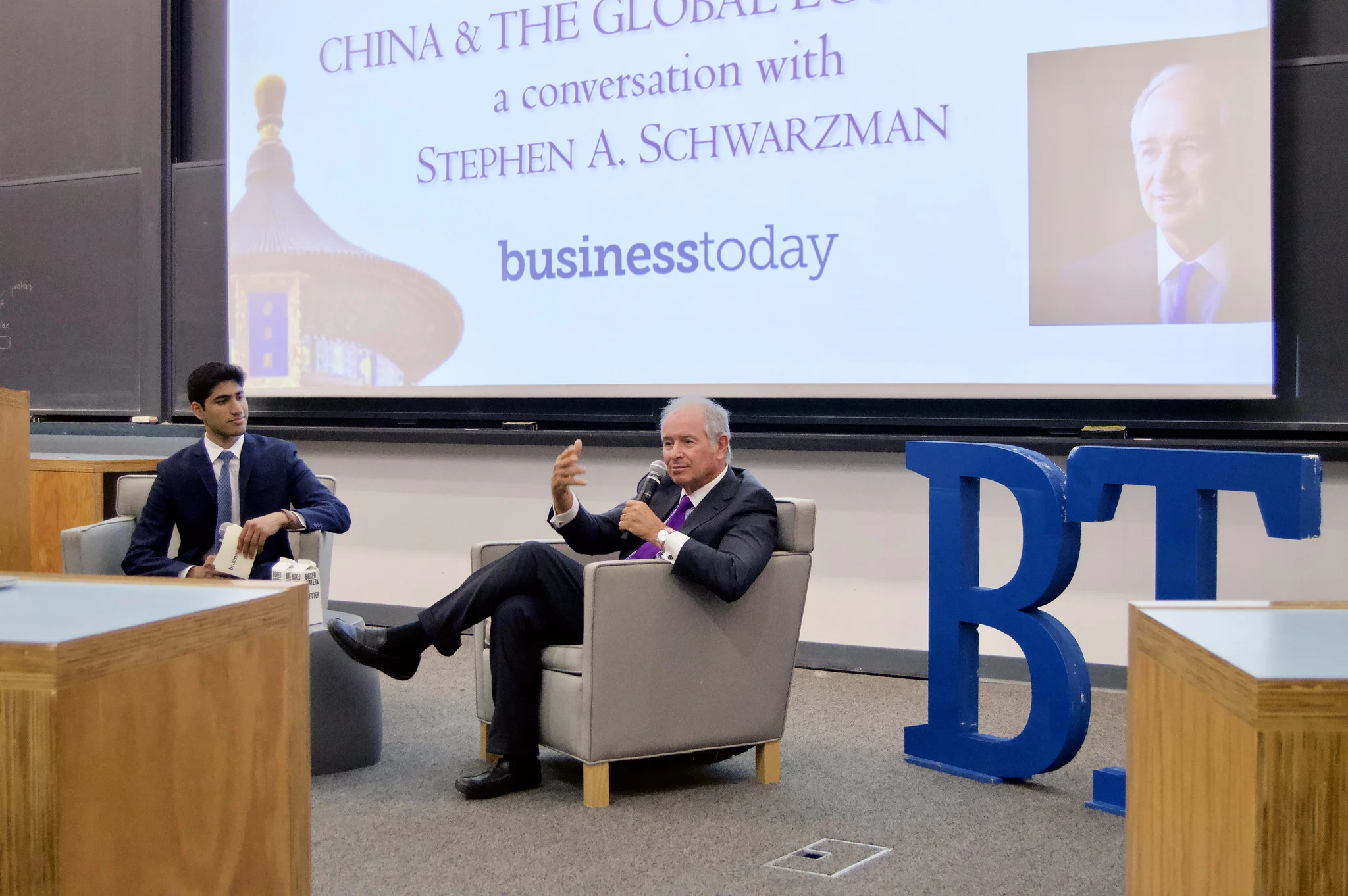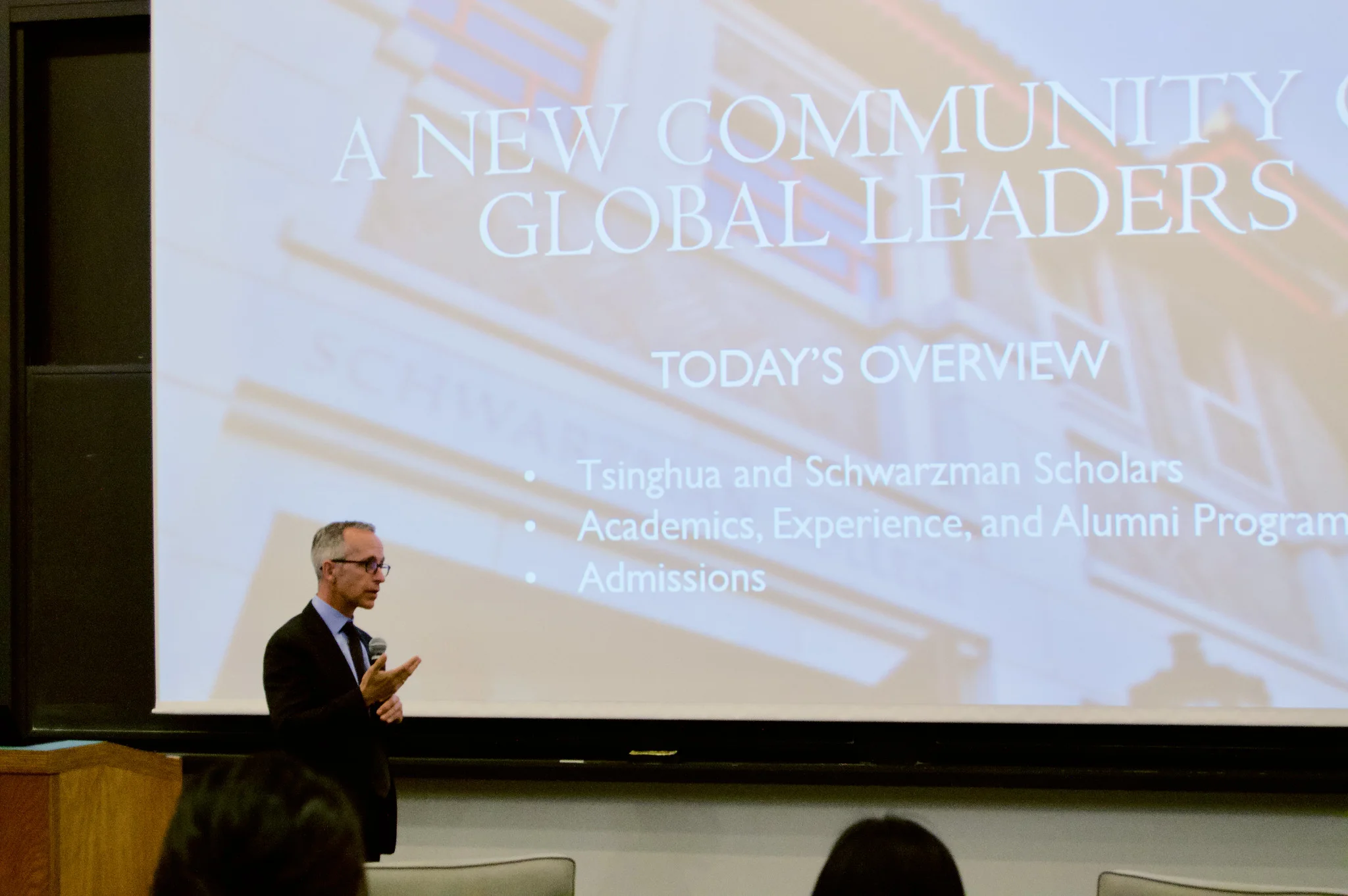China and the Global Economy: A Conversation with Stephen A. Schwarzman
The rise of China and the implications for the world are immeasurable, a message which reverberated clearly when Stephen A. Schwarzman, Chairman, CEO and Co-founder of Blackstone, and founder of Schwarzman Scholars, spoke during his fireside chat with Business Today.
The conversation with Mr. Schwarzman began on a somber note, discussing the reality of dampened US competitiveness and social mobility due to the erosion of leadership within education and technology. “In the olden days, the US was number one in the world in primary and secondary education. Now … we’re either number 30 or 35. In normal school systems, they’re not teaching computer science … The people who are going through the public school systems around the country [don’t receive] education that is useful for the world which you will all inherit.” Indeed, the lack of growth in the US and the West is implicitly defined by China’s rapid development.
While the U.S. has lagged behind, China has been undergoing major shifts, both technologically and economically. Not only did Mr. Schwarzman describe China’s rapid growth over the last few decades as “the biggest economic miracle that history has ever seen,” but he also stated that this development should be seen as a return of the “real China,” marked by wealth and power like its past.
“China is always changing … A year in China is like a dog year, and it’s shocking that things can change as much as they do. To see and understand China … you realize how slow moving the West is.”
As China undergoes these momentous changes, the gap in relationships between influential leaders from China and the rest of the world have widened. Mr. Schwarzman noticed this inadequate understanding of China which motivated his creation of Schwarzman Scholars, a highly selective scholarship program – modeled on the Rhodes Scholarship – which brings students from across the world to live and study together at Tsinghua University in Beijing. In fact, many of Mr. Schwarzman’s philanthropic efforts are rooted in improving education at a domestic and global level, and the Schwarzman Scholars are no exception.
Schwarzman Scholars all participate in a core curriculum, with Mandarin language classes and leadership training, and have the opportunity to specialize in different areas like business or public policy. After a year of study, students earn a Master’s Degree in Global Affairs. This intensive, fully-funded program is now in its fourth year with the mission, as its website indicates, to: “serve as a bridge between China and the rest of the world.”
According to Rob Garris, the Global Director of Admissions at Schwarzman Scholars, the program is intended to: “set something that's moving in the wrong direction back onto the correct path … [with the hope of identifying] young people who are very likely to take on leadership roles in the future.”
“One of the reasons we started Schwarzman Scholars is [because] people have different views of China, but if you haven’t seen [China], you don’t have a clue how the world is developing.”
Mr. Schwarzman furthered that being able to understand China through the Schwarzman program also confers responsibilities on future leaders. “Those [scholars] will have their own understandings of China [and] will be able to articulate what China is doing to the rest of the world or what China thinks it is doing, and it's a two-way street. That to the extent China is doing things that bothers the rest of the world, they'll have friends back in China and [ask] them “What are you doing?” Because sometimes a country doesn’t know when it's being [perceived] badly … And it works the other way, when you see your own country reacting to China [when] China is doing nothing wrong, your job … is to disabuse the people in your own country.”
Another goal is creating a lifetime network of students with relationships, shared experiences and an understanding of China from the program. Students from the latest class of scholars represent thirty-eight different countries and 119 universities. “Our plan is to take this succession of cohorts and meld them together with social media and have this group be a source for good … You make friends across cohorts, across years, you’ll find people you really like and stay in touch for a lifetime and help people. I know this is going to happen. The students are [already] doing it.” Mr. Schwarzman added that alumni have already been connecting with each other every three months, and he imagines the program, in its third year, will only continue to expand its global network.
By equipping young leaders with a better command of China and fortifying them with person-to-person relationships, the Schwarzman Scholars are undoubtedly in a unique position to address the challenges of a globalized 21st century with China at its heart.



